The best graphics cards of 2021 are essential to getting the most out of the best PC games but are also crucial for graphics design, 3D modeling, game development, and video editing.
For everyday computing needs like streaming video, web browsing, and productivity tasks, integrated graphics is more than enough for your needs, but if you are going to more graphics intensive tasks, you're going to need something more powerful like a discrete graphics processor.
Fortunately, that doesn't necessarily mean you need the most powerful graphics card out there, as some of the best cheap graphics cards are also some of the best values for their price. These can be perfect for many competitive gaming rigs where the level of detail isn't nearly as important as keeping up your frame rates and responsiveness.
Still, it's no secret that graphics cards of all kinds have been tough to get lately, so we're not expecting a lot of Black Friday deals in the weeks ahead – or Cyber Monday ones, for that matter – so if you're hoping to see some great sales on graphics cards, you'll probably be disappointed. Still, hope springs eternal, and we'd definitely like to see some savings on some of the cards on this list. It's been a long year, after all.
How to choose the best graphics card for you?
It can be difficult choosing the best graphics card for you. While there are just two companies, AMD and Nvidia, responsible for all the GPUs out there, each company has a number of entries for each price point and graphical need. And, while it may seem like the first logical step is to choose a company, it’s more important to consider what you can afford and what resolution you plan on gaming at.
After all, a high-end GPU like the Nvidia GeForce RTX 3080 may set you back quite a bit but, with that hefty price tag, the ability to keep up at 4K resolution. In general, AMD’s newest lineup of cards is going to run a little cheaper than Nvidia’s offerings – although that might not be for long with rumors about graphics cards possibly geting more expensive next year swirling around. But, when Nvidia released their newest GPUs, they dropped the price to be more competitive. So, the difference in price is not so stark, though it should still be a consideration. In fact, each company has a GPU that’s competitive for each level of gaming, whether it’s 1080p, 1440p, or 4K, at similar price points.
One important metric for finding out how powerful a GPU is how much memory it comes with. For example, a strong GPU for 1080p might have 8GB of GDDR6 RAM but one meant for higher resolutions, like the AMD Radeon RX 6700 XT, comes with 12GB.
Where the performance between the companies differ is in ray tracing - new rendering technology that improves reflections, shadows, and more realistically mimics light. With AMD RDNA 2, the company is just getting started on implementing this new tech. Whereas Nvidia Ampere GPUs are not Nvidia’s first entries, although developers have recently found a way to enable it in Quake 2 on older GPUs. In fact, the company has been at it longer so it’s better implemented.
Other considerations, particularly if you’re about to build your own PC or upgrade one of the best gaming PCs, is to make sure whatever GPU you end up with is compatible with that PC’s motherboard. After all, you won’t be able to play the best PC games if your desktop is having trouble recognizing the GPU you installed.
And, while you won’t be able to swap the graphics card out on a gaming laptop, these same considerations apply. You might be able to get a cheaper one with a Nvidia GeForce RTX 3060 or splurge on one with an RTX 3080.
Where to buy the best graphics cards right now:
- Where to buy the RTX 3080
- Where to buy the RTX 3060 Ti
- Where to buy the RTX 3060
- Where to buy Radeon RX 6800
- Where to buy Radeon RX 6900 XT
- Where to buy Radeon RX 6800 XT
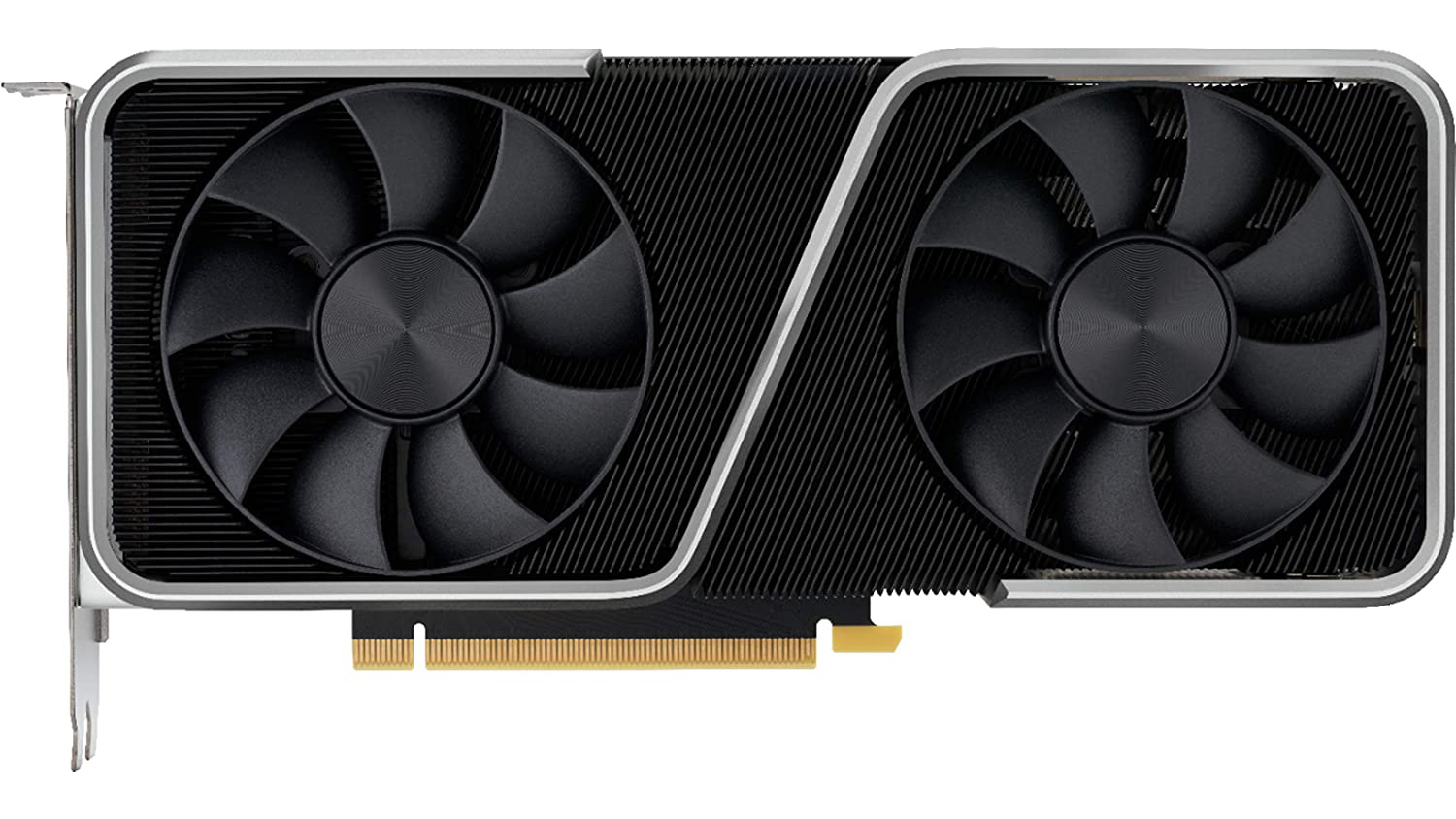
Is AMD no longer the king of great value GPUs? The Nvidia GeForce RTX 3060 Ti certainly threatens that claim with its price to performance ratio. The newest arrival in the RTX 3000 line, this graphics card punches way above its weight class, delivering a performance that could rival that of the RTX 2080 Super while keeping its price tag incredibly affordable for most people. And, that’s with impressive ray tracing included. 1080p gaming has never been this good and this affordable.
Read the full review: Nvidia GeForce RTX 3060 Ti
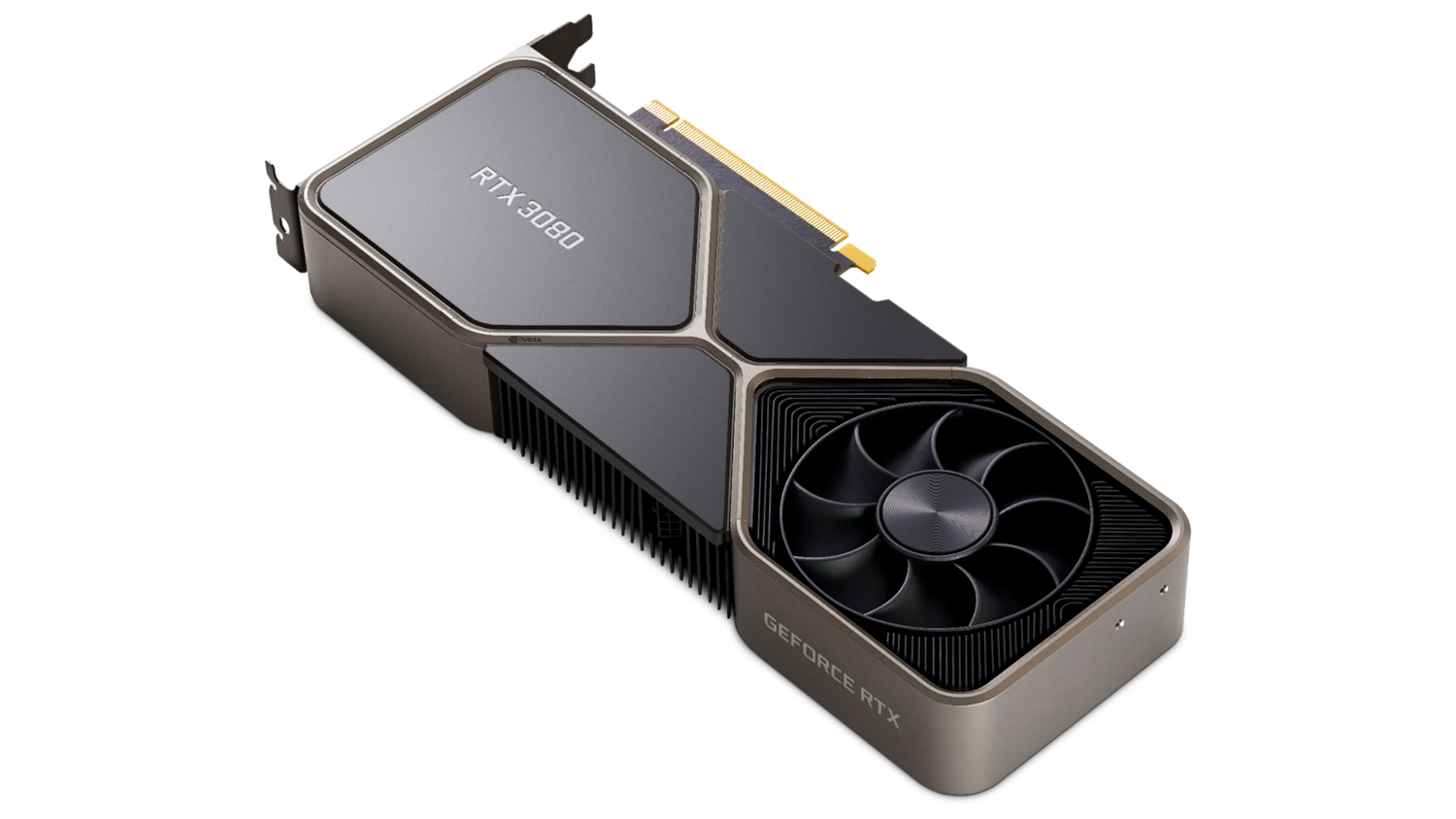
With the Nvidia GeForce RTX 3080, 4K gaming just became a lot more accessible. Before, you had to shell out more than $1,000/£1,000 to get playable framerates with the RTX 2080 Ti. However, with the next generation of Nvidia graphics cards, the price of 4K gaming has been cut nearly in half, thanks to the RTX 3080. It boasts one of the largest generational leaps in GPU history, delivering a 50-80% performance boost over the RTX 2080 and a 20-30% boost over the RTX 2080 Ti, all while keeping the same price point as the RTX 2080. This is both an absolute powerhouse of a graphics card and a great value, if you have a bit of extra cash lying around.
Read the full review: Nvidia GeForce RTX 3080
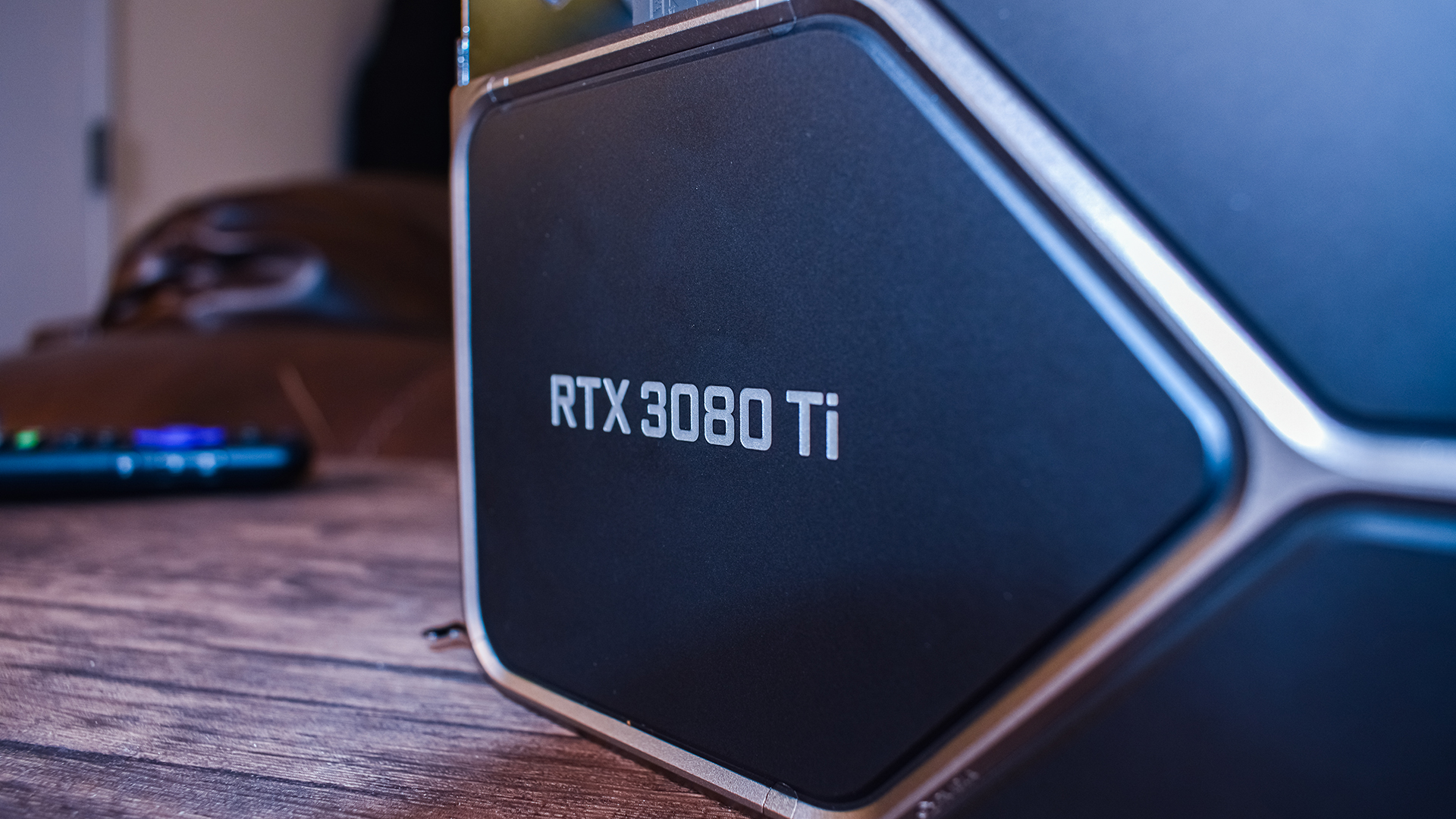
There’s a new Nvidia champion in town, and it takes power and performance to an even more accessible price point. Delivering RTX 3090-level performance, an impressive feat in its own right, the long-awaited RTX 3080 Ti comes with an even better price tag, making all that sheer power more accessible than ever. It continues what the RTX 3080 has started – to take 4K gaming into the mainstream arena – with its breathtaking 4K at 60fps performance while slashing a few hundred dollars off the steep 3090 price. This is the best graphics card on the market right now, especially if you care about ray tracing.
Read the full review: Nvidia GeForce RTX 3080 Ti
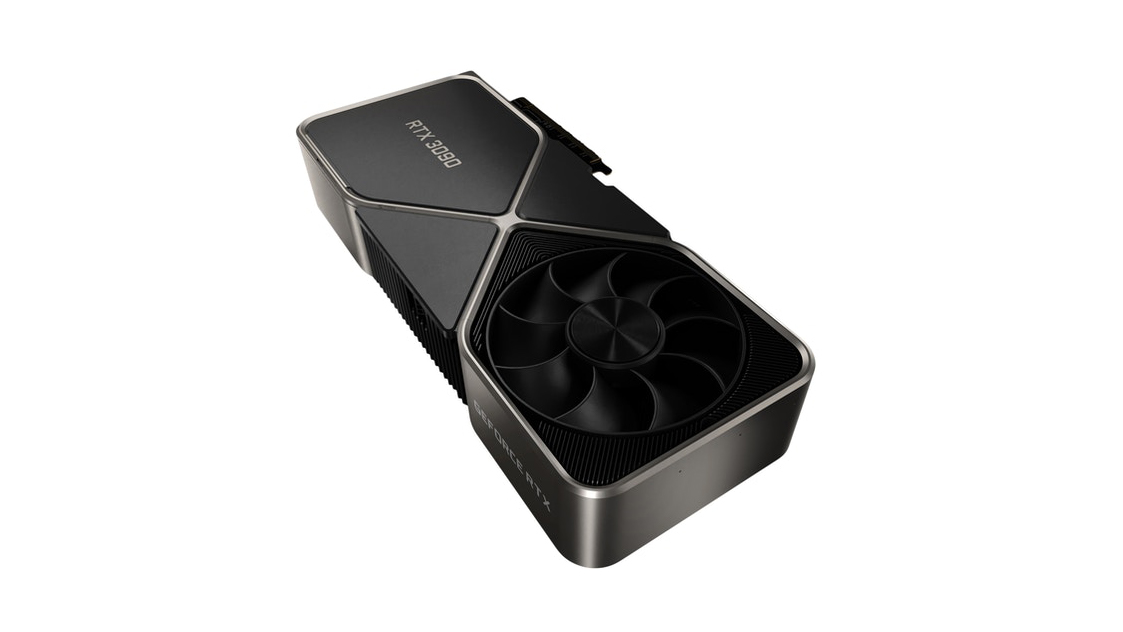
You can’t beat the Nvidia GeForce RTX 3090 when it comes to performance. With a whopping 24GB of RAM, no game or, more importantly, heavy graphics project will suffer performance issues. In fact, you can even get some 8K performance at 60 fps out of the 3090. It is an incredibly expensive unit, and quite large too, so it will probably be too much GPU for most users. The Nvidia GeForce RTX 3090 is, in essence, a replacement for the Titan so it’s meant more for the creative user tackling intensive 3D and video rendering than for the avid gamer. Even so, it comes with a massive reduction in price compared to the Titan, even if it’s still out of most people’s budget.
Read the full review: Nvidia GeForce RTX 3090
- We just tested the Nvidia GeForce RTX 2060 Super
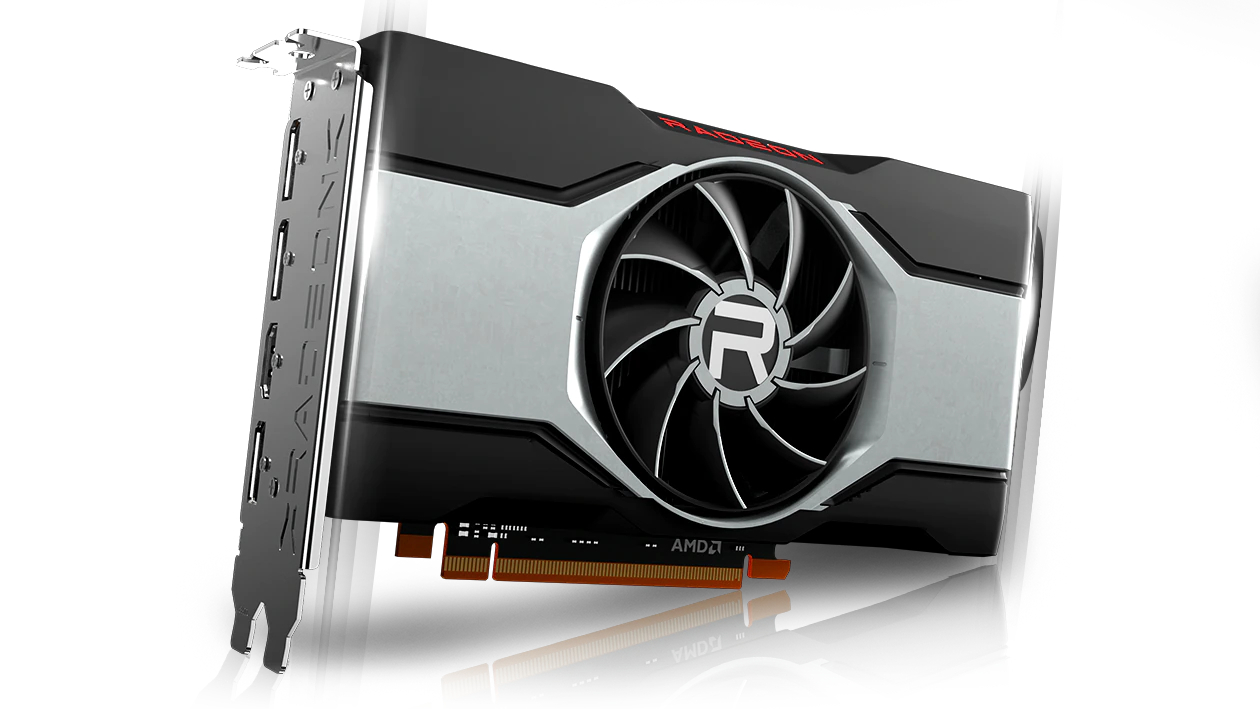
For rock solid 1080p gaming, you can’t go wrong with the AMD Radeon RX 6600 XT. Not only is the card a great performer, but it doesn’t use a lot of power so you can install it in a system with a smaller PSU. Because of its great thermal efficiency, you also don’t need a super expensive water cooling system built into your PC. Unfortunately, it is a bit pricier than the Nvidia GeForce RTX 3060, its direct competition, and doesn’t come with ray tracing.
Read the full review: AMD Radeon RX 6600 XT
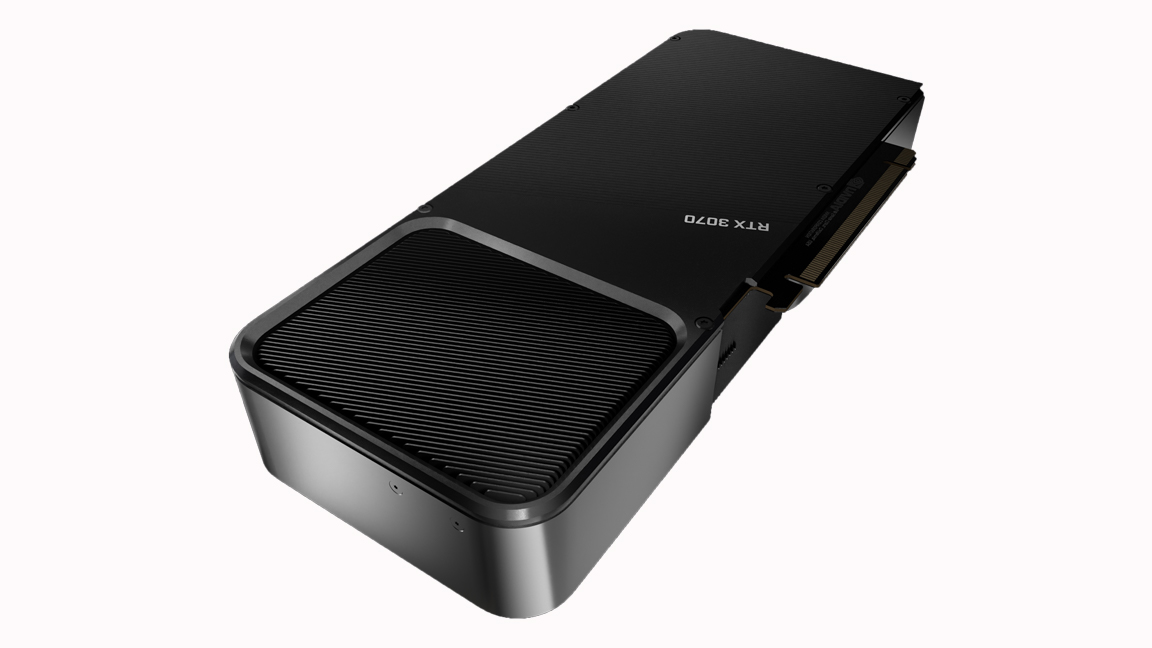
The best graphics card on the market for most people, the Nvidia GeForce RTX 3070 delivers excellent performance – on par with the RTX 2080 Ti even – without costing an arm and a leg. Before this card, 4K gaming was out of a lot of people’s budget. The RTX 3070, therefore, brings it to the mainstream for the first time, and that’s without you having to compromise on settings for most games. And did we mention the fact that this GPU is incredibly cheap? A cheap price tag plus 4K gaming on quality settings equals great value, and that’s why the RTX 3070 tops our list.
Read the full review: Nvidia GeForce RTX 3070
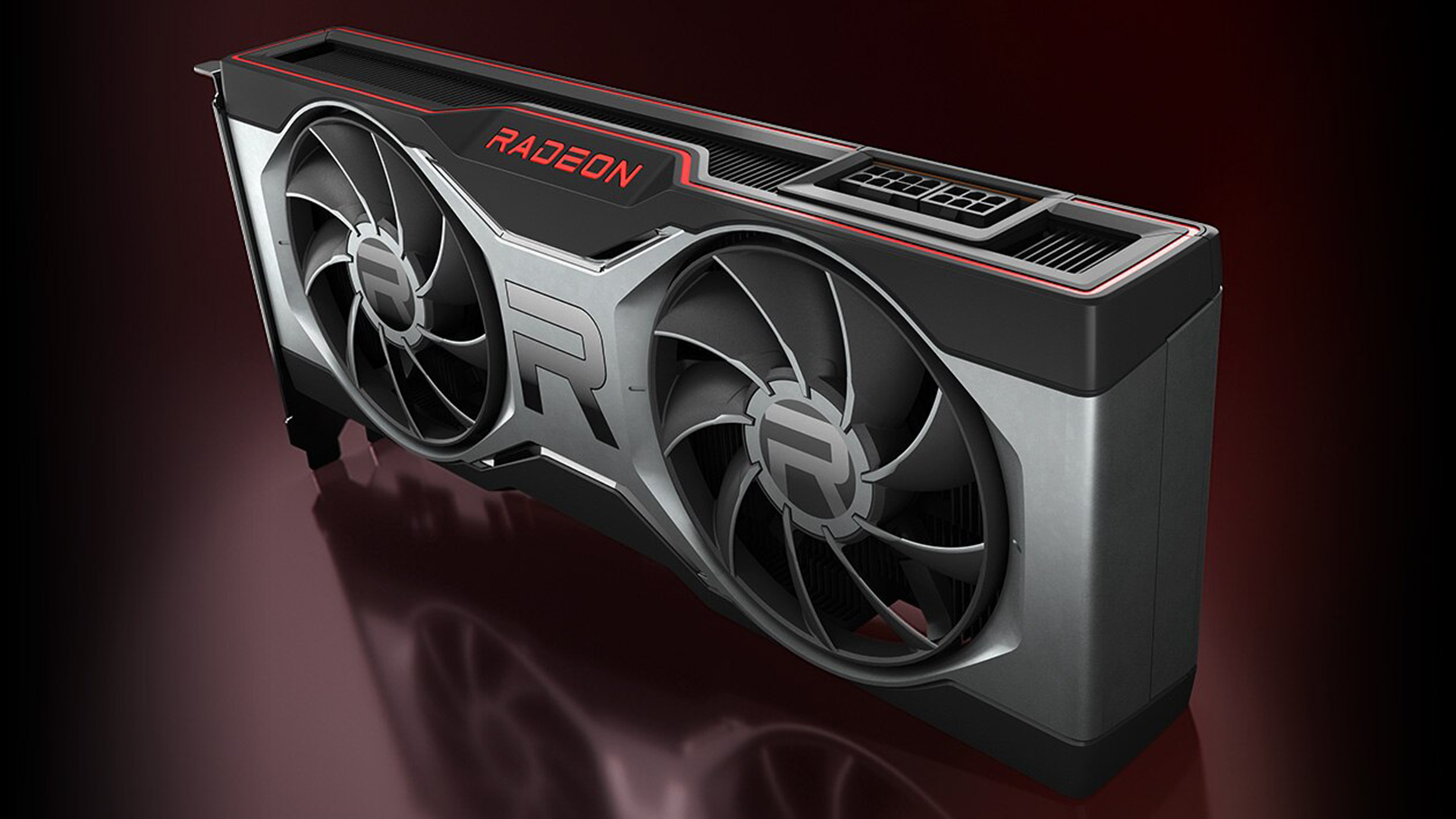
Those comfortable messing with your BIOS and looking for a 1440p graphics card that’s slightly more accessible, price-wise, will appreciate AMD’s latest high-end offering. This Nvidia GeForce RTX 3060 Ti rival delivers a solid 1440p performance with ray tracing to boot. It comes at the right time as well, with 1440p gaming monitors’ growing popularity. Its price is a bit closer to the more powerful RTX 3070, but if you’re an AMD fan, it’s still an excellent contender.
Read the full review: AMD Radeon RX 6700 XT
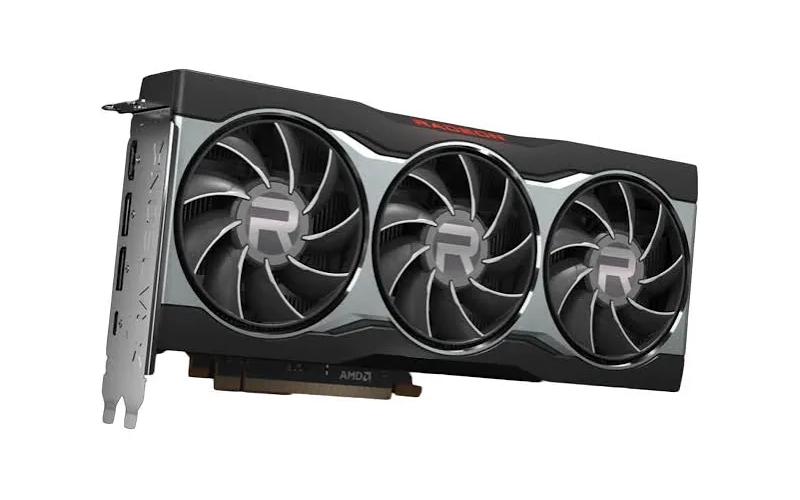
If you think AMD is still stuck in the budget and mid-range markets, think again. The AMD Radeon RX 6800 marks AMD's return to the high-end graphics card market, and it’s a premium ace without the incredibly premium price. This GPU delivers a solid 4K gaming performance and impressive ray tracing at 1440p, while being a better value than its direct rival, the RTX 3070, thanks to its VRAM. Plus, AMD's Smart Access Memory technology will make it even faster.
Read the full review: AMD Radeon RX 6800
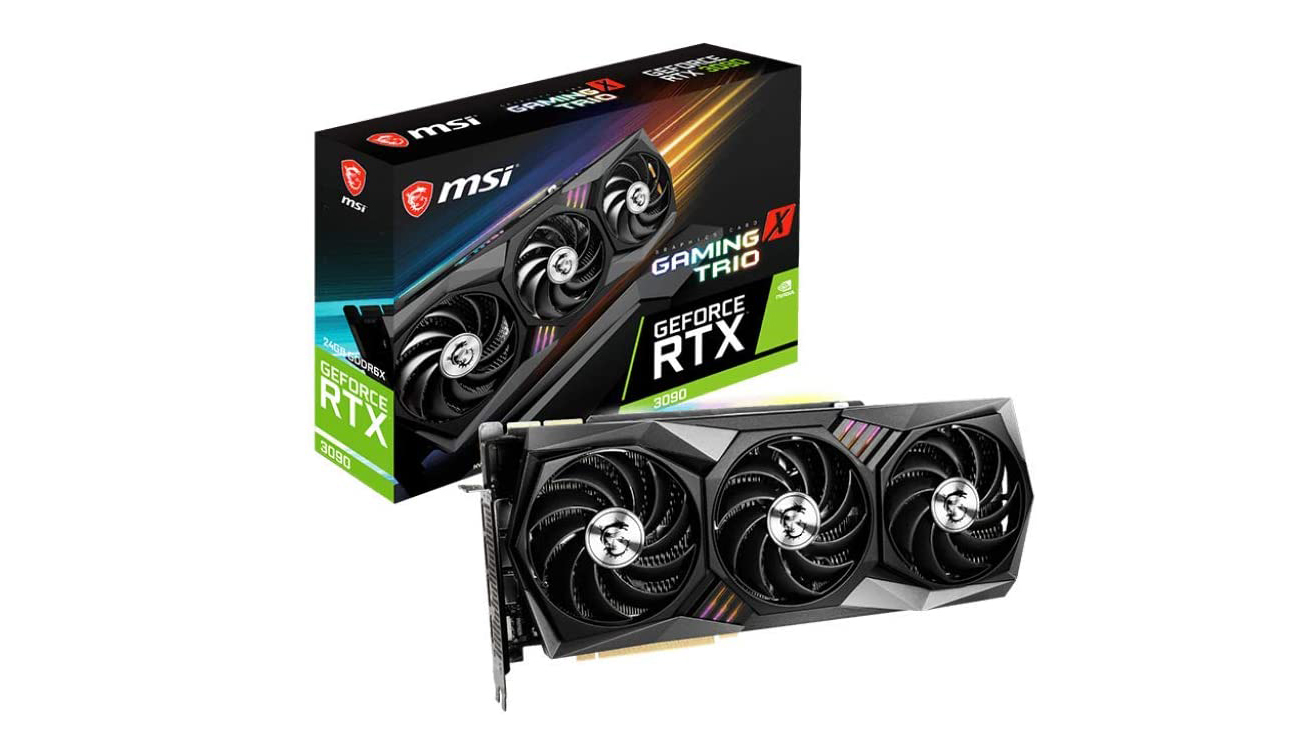
If you're after the Nvidia GeForce RTX 3090, you're going to want one with a cooler that's more than powerful enough to handle the full brunt of the power on offer. The MSI GeForce RTX 3090 Gaming X Trio has the cooling power not only to handle this GPU at its stock settings, but has enough oomph to overclock it to make it even more powerful. For a GPU that already laughs in the face of all PC games at 4K, this extra power is just icing on the cake.
Read the full review: MSI GeForce RTX 3090 Gaming X Trio
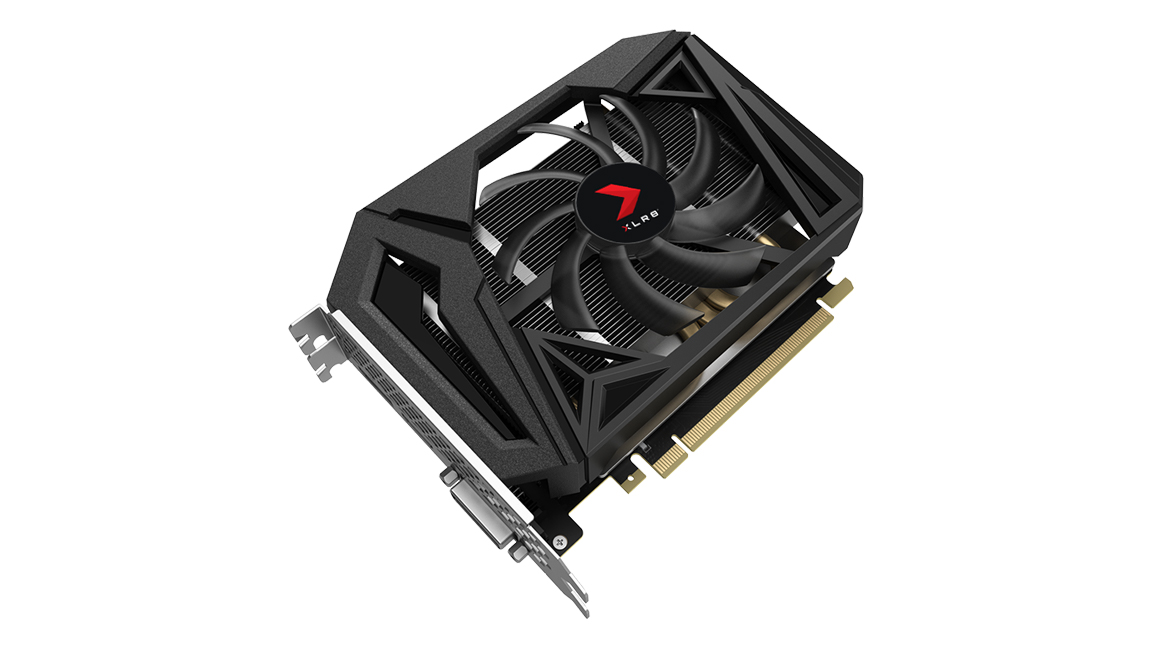
When Nvidia first revealed its Turing lineup, it was hard to find a model that didn’t cost an arm and a leg. Nonetheless, with the launch of the Nvidia GeForce GTX 1660 Ti – especially the PNY XLR8 Gaming OC model – next-generation performance became accessible to everyone. You won’t have access to 4K 60 fps gaming with this card, but it’s one of the best graphics cards for anyone still using a 1080p display, and it can handle most esports games well above 60fps. At that resolution, you’ll have trouble running into any title that it can’t handle.
Read the full review: PNY GeForce GTX 1660 Ti XLR8 Gaming OC
Which graphics card is best for gaming?
Generally speaking, the best graphics card for gaming is going to depend on several factors. Things like what kind of games you like to play, what resolution you play at and whether or not you care about fancy features like ray tracing and DLSS are incredibly important.
For example, if you just want to play all the latest games at 1080p with high settings, you can get by with an Nvidia GeForce RTX 3060 or an AMD Radeon RX 6600 XT. But if you want to play everything totally maxed out with ray tracing at 4K, you're probably going to want to go for something like the RTX 3080 Ti instead.
How we test the best graphics cards
When it comes to the best graphics cards, it's incredibly important to make sure we're testing everything on an equal playing field. That's why, whenever a new graphics card comes out, we test it in a suite of around 11-12 games and across several resolutions, all on current drivers.
That means that we re-test all current-generation graphics cards whenever a new one comes out. And we make sure that all of the cards are tested on the same hardware, which means the same processor, with the same memory at the same speed, on the same motherboard, with the same SSD. That way, we can be sure that we're measuring how the graphics card itself is performing, and we can more reliably compare it against its rivals.
We also make sure to log how much power its consuming and the temperatures it reaches under load, to make sure we can recommend it to people that may be concerned about high temperatures in their PCs.
Finally, we take a look at the features that each graphics card offers, though usually these don't really change generation-to-generation. However, the performance while enabling something like ray tracing definitely can change.
What is the best brand for graphics cards?
The age-old question of whether Nvidia or AMD is the best brand for graphics cards will likely never go away. Right now, both GPU manufacturers are basically on equal ground, and what will ultimately be right for you probably won't be right for someone else.
Generally, if you like ray tracing, Nvidia will probably have the edge for you and in the past AMD was better for people on a budget.
What GPU should I buy in 2021?
The truth is that right now buying a graphics card is harder than ever. You'll rarely find one available on a store shelf, and when you do it'll be gone within seconds. So, really, the GPU you should buy in 2021 is whatever you can get your hands on (and you can afford).
You should probably avoid spending more than twice the retail price for a graphics card – a $1,000 RTX 3060 isn't worth it for instance – but if you need a graphics card right now, just be ready to get whatever comes in stock.
If you already have a pretty good graphics card, though, like if it's from the last 5 or so years, you might want to wait until the current global supply situation starts to normalize. Yeah, you might not get ray tracing, but if you can still play games, you're probably fine waiting.
from TechRadar - All the latest technology news https://ift.tt/2HO5gX3
No comments:
Post a Comment